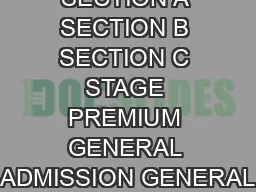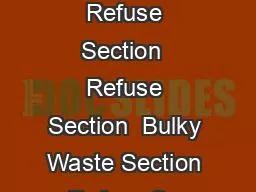PPT-Chapter 11-Section 1
Author : liane-varnes | Published Date : 2017-03-16
Expressed Powers of Money and Commerce Pair up with an elbow partneryou need pen and paper with both full names at the top Title it Taxes 1 In your words explain
Presentation Embed Code
Download Presentation
Download Presentation The PPT/PDF document "Chapter 11-Section 1" is the property of its rightful owner. Permission is granted to download and print the materials on this website for personal, non-commercial use only, and to display it on your personal computer provided you do not modify the materials and that you retain all copyright notices contained in the materials. By downloading content from our website, you accept the terms of this agreement.
Chapter 11-Section 1: Transcript
Download Rules Of Document
"Chapter 11-Section 1"The content belongs to its owner. You may download and print it for personal use, without modification, and keep all copyright notices. By downloading, you agree to these terms.
Related Documents














